Recombinant Mouse Fibroblast growth factor 4 (Fgf4)
-
货号:CSB-YP008631MO
-
规格:
-
来源:Yeast
-
其他:
-
货号:CSB-EP008631MO
-
规格:
-
来源:E.coli
-
其他:
-
货号:CSB-EP008631MO-B
-
规格:
-
来源:E.coli
-
共轭:Avi-tag Biotinylated
E. coli biotin ligase (BirA) is highly specific in covalently attaching biotin to the 15 amino acid AviTag peptide. This recombinant protein was biotinylated in vivo by AviTag-BirA technology, which method is BriA catalyzes amide linkage between the biotin and the specific lysine of the AviTag.
-
其他:
-
货号:CSB-BP008631MO
-
规格:
-
来源:Baculovirus
-
其他:
-
货号:CSB-MP008631MO
-
规格:
-
来源:Mammalian cell
-
其他:
产品详情
-
纯度:>85% (SDS-PAGE)
-
基因名:
-
Uniprot No.:
-
别名:Fgf4; Fgf-4; KfgfFibroblast growth factor 4; FGF-4; Heparin-binding growth factor 4; HBGF-4; K-fibroblast growth factor
-
种属:Mus musculus (Mouse)
-
蛋白长度:Full Length of Mature Protein
-
表达区域:30-202
-
氨基酸序列A PNGTRHAELG HGWDGLVARS LARLPVAAQP PQAAVRSGAG DYLLGLKRLR RLYCNVGIGF HLQVLPDGRI GGVHADTRDS LLELSPVQRG VVSIFGVASR FFVAMSSRGK LFGVPFFTDE CKFKEILLPN NYNAYESYAY PGMFMALSKN GRTKKGNRVS PTMKVTHFLP RL
-
蛋白标签:Tag type will be determined during the manufacturing process.
The tag type will be determined during production process. If you have specified tag type, please tell us and we will develop the specified tag preferentially. -
产品提供形式:Lyophilized powder
Note: We will preferentially ship the format that we have in stock, however, if you have any special requirement for the format, please remark your requirement when placing the order, we will prepare according to your demand. -
复溶:We recommend that this vial be briefly centrifuged prior to opening to bring the contents to the bottom. Please reconstitute protein in deionized sterile water to a concentration of 0.1-1.0 mg/mL.We recommend to add 5-50% of glycerol (final concentration) and aliquot for long-term storage at -20℃/-80℃. Our default final concentration of glycerol is 50%. Customers could use it as reference.
-
储存条件:Store at -20°C/-80°C upon receipt, aliquoting is necessary for mutiple use. Avoid repeated freeze-thaw cycles.
-
保质期:The shelf life is related to many factors, storage state, buffer ingredients, storage temperature and the stability of the protein itself.
Generally, the shelf life of liquid form is 6 months at -20°C/-80°C. The shelf life of lyophilized form is 12 months at -20°C/-80°C. -
货期:Delivery time may differ from different purchasing way or location, please kindly consult your local distributors for specific delivery time.Note: All of our proteins are default shipped with normal blue ice packs, if you request to ship with dry ice, please communicate with us in advance and extra fees will be charged.
-
注意事项:Repeated freezing and thawing is not recommended. Store working aliquots at 4°C for up to one week.
-
Datasheet :Please contact us to get it.
靶点详情
-
功能:Plays an important role in the regulation of embryonic development, cell proliferation, and cell differentiation. Is essential for survival of the postimplantation mouse embryo. Required for normal limb and cardiac valve development during embryogenesis.
-
基因功能参考文献:
- results demonstrate the mechanism for the maintenance of the undifferentiated state of embryonic stem cells via the inhibition of the FGF4-PKCzeta-MEK-ERK1/2 pathway by O-GlcNAcylation on PKCzeta. PMID: 29249667
- The correlation in expression of FGF4 with specific stages of tooth morphogenesis support its regulatory function. PMID: 28806497
- We demonstrate with genetic evidence that the Wnt5a gradient acts as a global cue that is instructive in establishing planar cell polarity (PCP) in the limb mesenchyme, and that Wnt5a also plays a permissive role to allow Fgf4 and Fgf8 signaling to orient PCP. PMID: 29615464
- the paternal genome facilitates the proliferation of trophoblast cells without FGF4 signaling PMID: 26498204
- There was intense Fgf4 expression observed in the PEK of the cap-stage tooth germ at E14. At E15, Fgf4 became sparse in the epithelium except for the PEK. Fgf4 was exclusively expressed in the apical end of the labial epithelium during E16-18 PMID: 26042621
- With efficient chimera-forming capability using a medium containing fibroblast growth factor (FGF)-4. PMID: 25515008
- Taken together, our results demonstrated that mating behaviours influenced embryonic development in vitro by decreasing FGF4 expression. PMID: 23172713
- the amount of FGF4 is limited and regulates PE/EPI proportions in the mouse embryo. PMID: 24063807
- The role of Fgf4 in response to apoptosis and genotoxic stress is discussed. PMID: 23145002
- FGF4 is required for lineage restriction and salt-and-pepper distribution of primitive endoderm factors but not their initial expression in the mouse PMID: 23193166
- FGF4 is required to maintain a population of progenitor cells in the epiblast that generates mesoderm and contributes to the stem cell population that is incorporated in the tailbud and required for axial elongation of the mouse embryo after gastrulation. PMID: 22954964
- This study uncovers an important role of HDAC1 and histone modifications in the repression of Fgf4 and perhaps other pluripotency genes during embryonic stem cell differentiation. PMID: 21321941
- study provides genetic evidence that FGFs are the wavefront signal and identifies the data show that FGF action maintains WNT signaling, and that both signaling pathways are required in parallel to maintain PSM progenitor tissue PMID: 21368122
- Cells ceased proliferation and differentiated when FGF4, heparin, and rat embryonic fibroblasts conditioned medium were removed. PMID: 21215265
- KDM7A is a dual-specificity histone demethylase that regulates neural differentiation through FGF4. PMID: 20084082
- FGF4 and FGF8 regulate cell number in the nascent limb bud and are required for survival of cells located far from the AER PMID: 12152071
- p300 associates physically with and can mediate the action of the distal enhancer of the FGF-4 gene PMID: 12488456
- Fgf4 is expressed in early inner ear development. PMID: 14517998
- The blues transcription factor binds the enhancer of Fgf4 and represses transcription. PMID: 14988001
- Shh-expressing cells and their descendants cannot express Gremlin; proliferation of these descendants forms a barrier separating the Shh signal from Gremlin-expressing cells which breaks down the Shh-Fgf4 loop and affects limb size PMID: 15256670
- By creating mice lacking both Fgf4 and Fgf8 function in the forelimb apical ectodermal ridge, we show that limb bud mesenchyme fails to survive in the absence of both FGF family members. PMID: 15328019
- FGF4 signaling in trophoblast stem cells selectively inhibits the ability of TGF-beta to repress c-myc expression. PMID: 15464579
- Fgf4 expression is induced by the transforming growth factor beta-related protein Nodal. PMID: 15505202
- NF-Y can stimulate or repress the FGF-4 promoter in an enhancer-dependent manner PMID: 16128003
- Increasing Fgf4 expression in the mouse limb bud causes polysyndactyly and rescues the skeletal defects that result from loss of Fgf8 function. PMID: 16308330
- suggests that the differences seen in FGF-4 enhancer activity may reflect a mechanism used to decrease, but not abolish, FGF-4 expression as the early embryo develops. PMID: 16523502
- In the embryonic and in the postnatal brain FGF-4 has an ability to promote neural stem cell proliferation and neuronal differentiation. PMID: 16723380
- Fgf4 stimulation of Erk1/2 is an autoinductive stimulus for naive ES cells to exit the self-renewal programme. PMID: 17660198
- analysis of compound mouse mutants defective in genes comprising the Fgf/Shh positive loop provided genetic evidence that FGF signalling can repress Grem1 expression, revealing a novel Fgf/Grem1 inhibitory loop PMID: 18594511
- involved in early anterior mesendoderm differentiation PMID: 18940732
- Fgf4 positively regulated Pea3, Sprouty1, and 2 expression in chick limb mesenchyme. PMID: 19384958
- PARP1 poly(ADP-ribosyl)ates Sox2 to control Sox2 protein levels and FGF4 expression during embryonic stem cell differentiation PMID: 19531481
显示更多
收起更多
-
亚细胞定位:Secreted.
-
蛋白家族:Heparin-binding growth factors family
-
组织特异性:Expressed in the blastocyst inner cell mass and later in distinct embryonic tissues.
-
数据库链接:
KEGG: mmu:14175
STRING: 10090.ENSMUSP00000056752
UniGene: Mm.4956
Most popular with customers
-
Recombinant Human Tissue factor pathway inhibitor (TFPI), partial (Active)
Express system: Mammalian cell
Species: Homo sapiens (Human)
-
Recombinant Human Desmoglein-2 (DSG2), partial (Active)
Express system: Mammalian cell
Species: Homo sapiens (Human)
-
Recombinant Human Cadherin-17 (CDH17), partial (Active)
Express system: Mammalian cell
Species: Homo sapiens (Human)
-
Recombinant Macaca Gastric inhibitory polypeptide receptor(GIPR), partial (Active)
Express system: yeast
Species: Macaca fascicularis (Crab-eating macaque) (Cynomolgus monkey)
-
Recombinant Human Gastric inhibitory polypeptide receptor(GIPR),partial (Active)
Express system: Mammalian cell
Species: Homo sapiens (Human)
-
Recombinant Macaca fascicularis Zinc transporter ZIP6 isoform X1(SLC39A6),partial (Active)
Express system: Baculovirus
Species: Macaca fascicularis (Crab-eating macaque) (Cynomolgus monkey)
-
Recombinant Human Tumor necrosis factor ligand superfamily member 15(TNFSF15) (Active)
Express system: Mammalian cell
Species: Homo sapiens (Human)


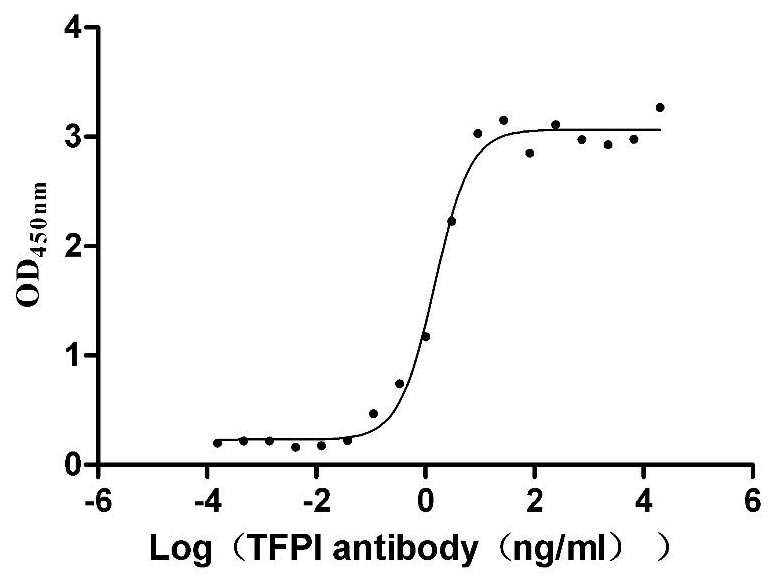
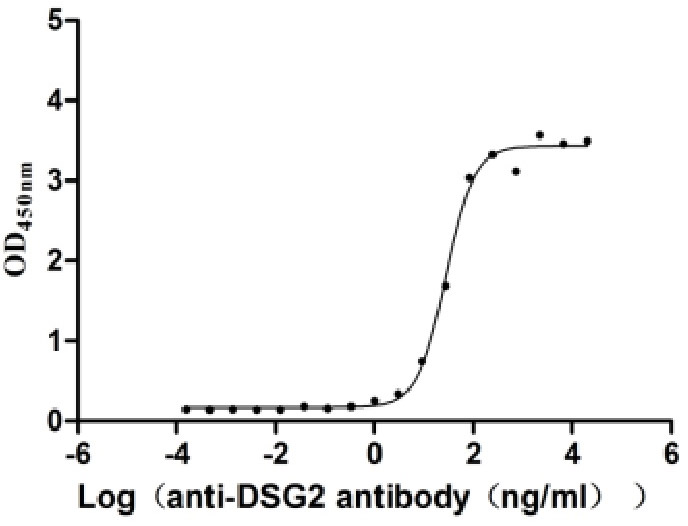
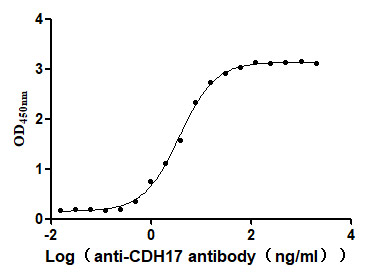
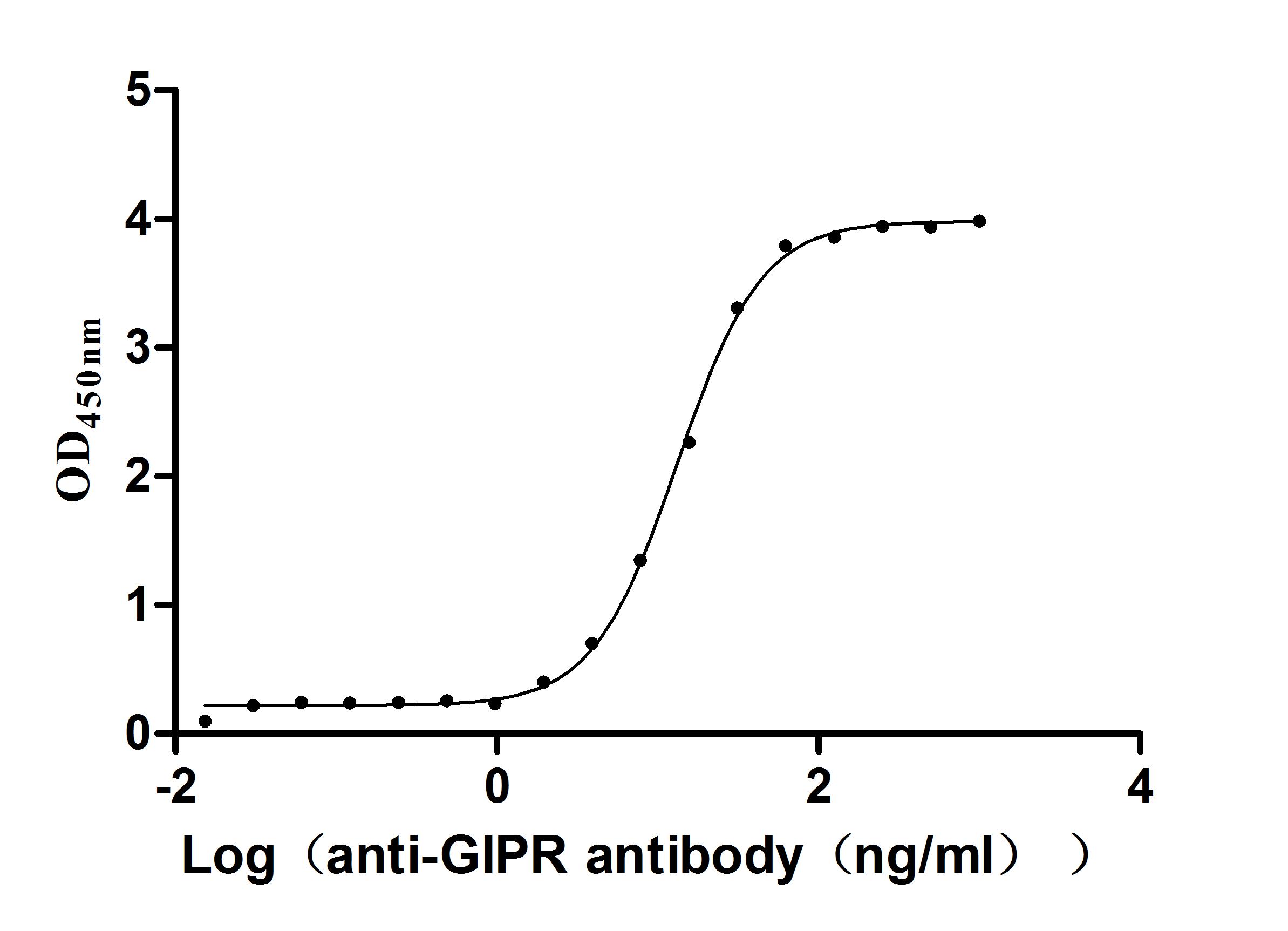
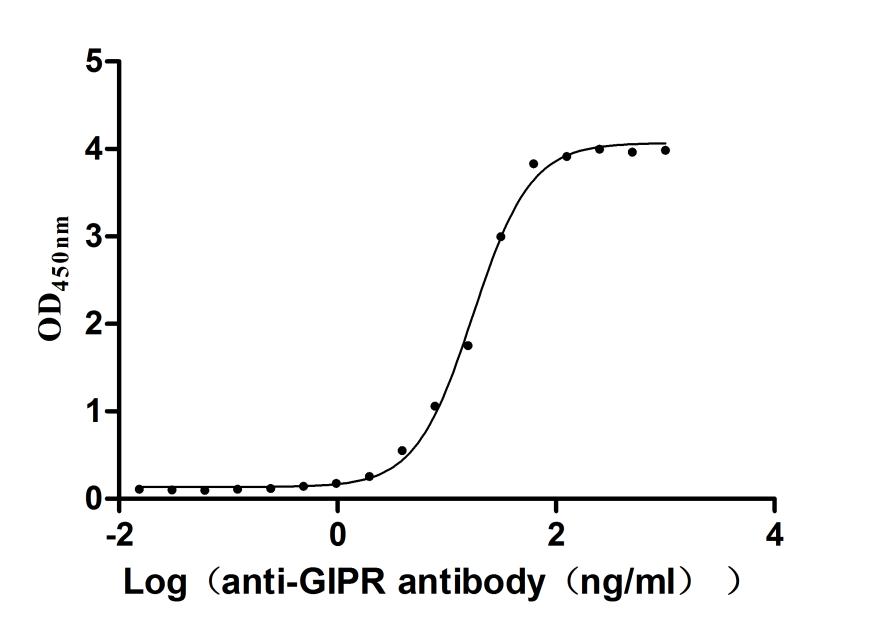
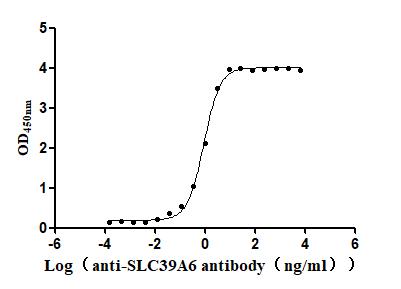
-AC1.jpg)










